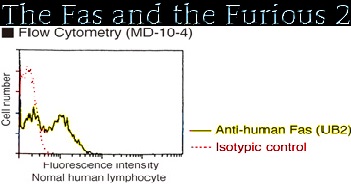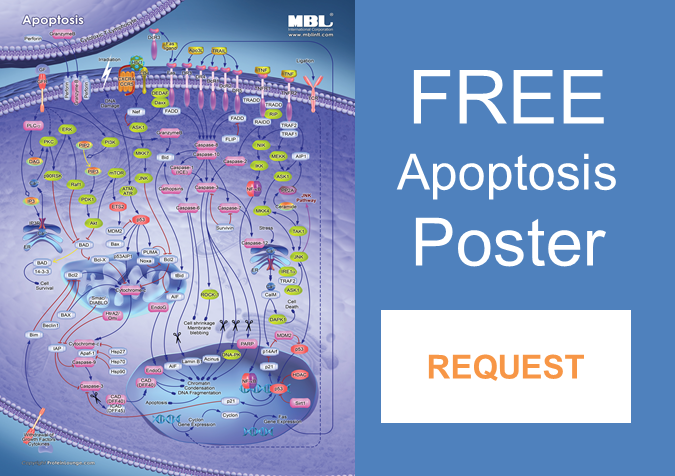Published by Deane Buckley on May 13, 2015 3:14:46 PM

Given the prominent role of Fas in many important cell functions (7 Facts to Catch You Up to Speed on Fas), Fas has been implicated in a variety of disease states such as cancer. Here are some major findings from recent research about the role of Fas in cancer:
Role of Fas in Cancer
Mutations in the genes that encode for Fas have been found to increase the risk of developing many types of cancer such as breast, gastric and esophageal1. However, high levels of Fas expression in cancer cells have been found to be a positive prognostic marker for cancer patients, indicating higher survival rates2. It has been found that immune cells called CD8+ cytotoxic lymphocytes can kill cancer cells by binding to Fas with Fas ligand3.
Resistance Mechanisms
However, cancer cells have developed many resistance mechanisms to these immune cells:
- Cancer cells can lower the expression of Fas on the cell surface. Cancer cells can alter the levels of Fas transporters FAP-1 and dynamin which lowers the level of Fas transport to the cell surface. Lower levels of Fas on the cancer cell surface decrease the ability of CD8+ cytotoxic lymphocytes to bind and kill cancer cells4.
- Many cancer cells can develop resistance by increasing the expression of a protein on its cell surface called cFLIP. cFLIP interferes with apoptosis by blocking the Fas receptor from activating caspases. Without caspase activation, Fas cannot induce apoptosis3.
- Recent research has suggested that cancer cells can “counterattack” and induce apoptosis in T cells by expressing Fas ligand. However, the existence of this method of resistance is debated3.
Therapeutic Targeting of Fas
Given their prominent role in cancer, drugs targeting Fas has been explored as a potential treatment for cancer5. One possible type of treatment is an antibody targeting Fas. However, major side effects of using a Fas antibody to target Fas have been found to be lethal in mice. This lethality was caused by the Fas antibody targeting healthy cells in the liver causing severe damage5. Other treatments that do not directly target Fas are being explored such as IAP antagonists. IAP inhibits effector caspases which are necessary for Fas-induced apoptosis to occur5.
Given the importance of Fas in cancer, research in Fas is a very hot topic. MBL International offers a variety of products to help further your research of Fas including many Anti-Fas antibodies:
- Anti-Fas (CD95) monoclonal antibody Applications: WB, FCM
- Anti-Fas (CD95) (Human) mAb-FITC Applications: IHC, FCM
- Anti-Fas Ligand (CD178) (Human) mAb-FITC Applications: ELISA, FCM

